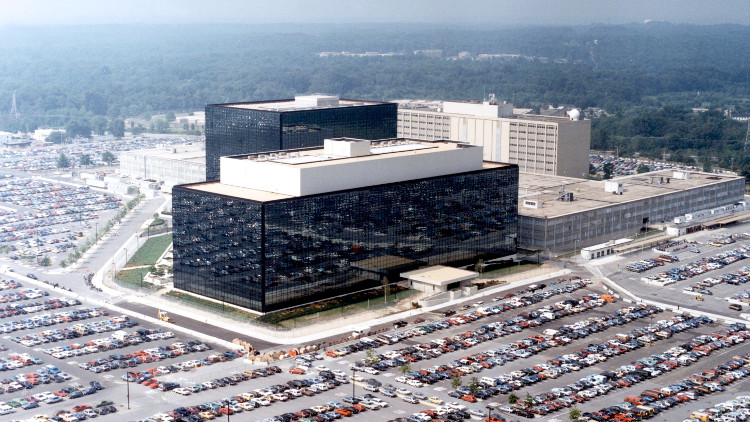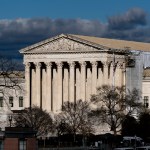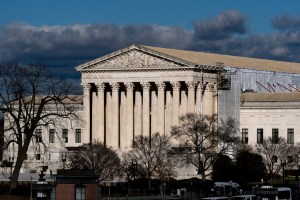He was vilified, crucified, deemed a traitor by some and a spy by others, and charged under the Espionage Act, forcing him to seek refuge in Vladimir Putin’s Russia—yet many of the same lawmakers who lambasted National Security Agency whistleblower Edward Snowden have voted in favor of curtailing the dragnet surveillance program he helped to expose.
Even Snowden’s harshest critics must appreciate the irony.
On Tuesday, the US Senate, after often contentious debate over the so-called USA Freedom Act, which sought to amend Section 215 of the Patriot Act that was hastily passed days after the Sept. 11, 2001 attacks, approved the measure 67-32—more than two weeks after it overwhelmingly passed the House, and one day after the program expired—essentially marking the first time in 14 years that Americans’ phone calls weren’t being gobbled up by the NSA.
The bill was almost immediately signed into law by President Obama late Tuesday after what he said was a “needless delay and inexcusable lapse in important national security authorities.”
Under the new law, the government will no longer be in the business of collecting and storing Americans’ phone call data. That job will be left to the phone companies, but it will take six months for the change to occur. Now, US authorities must get a court order to gain access to such data—phone numbers, phone call length, and in some cases, the caller’s location. The law also forces the secret Foreign Intelligence Surveillance Act (FISA) courts to declassify disputed decisions and creates an advocate that would argue privacy concerns before the court.
The bill inspired political theatrics that only Washington could produce. The Senate was forced to remain in Washington over the weekend amid disagreements between national security hawks and privacy proponents. Defying the wishes of majority leader Sen. Mitch McConnell, a fellow Kentucky Republican, Sen. Rand Paul (R-KY), a Republican presidential candidate, single-handily caused the original law to expire at midnight Monday. Unlikely alliances were forged as the bill’s supporters tried to push it across the goal line. House Republicans had told their Senate colleagues that any changes to the bill they’d previously passed would be rejected.
Long Island’s entire Congressional delegation voted in favor of the bill, including Rep. Peter King (R-Seaford), a staunch defender of the NSA and one of Snowden’s biggest critics.
“It was the strongest NSA legislation that can pass the House,” King said in a statement when the House bill had passed. “Also, as a practical matter, the NSA should still be at least 90-percent as effective under the Freedom Act as it is under current law.”
The law’s final approval prompted cheers from groups fighting for privacy.
“The passage of the USA Freedom Act is a milestone,” Jameel Jaffer, American Civil Liberties Union deputy legal director, said in a statement. “This is the most important surveillance reform bill since 1978, and its passage is an indication that Americans are no longer willing to give the intelligence agencies a blank check.”

Despite the historic vote, Jaffer noted that the fight for privacy isn’t over.
“The passage of this bill is an indication that comprehensive reform is possible, but it is not comprehensive reform in itself,” he added. “Over the next weeks and months, lawmakers must tackle the larger project of bringing the government’s surveillance practices back in line with democratic values.”
Sen. Ron Wyden (D-Ore) echoed Jaffer’s sentiment.
Passage of USA Freedom is the most significant victory for Americans’ privacy rights in more than a decade
— Ron Wyden (@RonWyden) June 2, 2015
The fight to protect Americans’ privacy rights is far from over though. And we’ll keep fighting.
— Ron Wyden (@RonWyden) June 2, 2015
The bill’s passage comes almost exactly two years to the day that journalists Glenn Greenwald, then with the Guardian, and Laura Poitras, embarked on a cloak-and-dagger journey to China for a meeting with an unidentified source who had privately produced scores of documents to Poitras revealing massive US government surveillance at home and abroad.
Since then, dozens of articles have been published from news organizations across the globe using documents disclosed by Snowden, a former NSA contractor.
Some of Snowden’s supporters suggested that Tuesday’s vote vindicated him.
King, despite his vote, doesn’t see it that way, according to a blistering Tweet he sent out Tuesday:
Today’s Senate NSA vote is a victory for America, for freedom over ignorance and defeat for ISIS, Edward Snowden & Rand Paul
— Rep. Pete King (@RepPeteKing) June 2, 2015
The bill’s passage also comes weeks after the US Court of Appeals for the Second Circuit ruled that bulk collection under the NSA’s metadata program is not authorized by Section 215 of the Patriot Act. The court ruled that the program exceeded the scope of Congress’ authorization.
Yet, advocates say, more needs to be done to limit what they deem unwarranted government intrusion into the lives of innocent Americans.
“It’s a testament to the significance of the Snowden disclosures and also to the hard work of many principled legislators on both sides of the aisle,” Jaffer said in his statement. “Still, no one should mistake this bill for comprehensive reform. The bill leaves many of the government’s most intrusive and overbroad surveillance powers untouched, and it makes only very modest adjustments to disclosure and transparency requirements.”


























